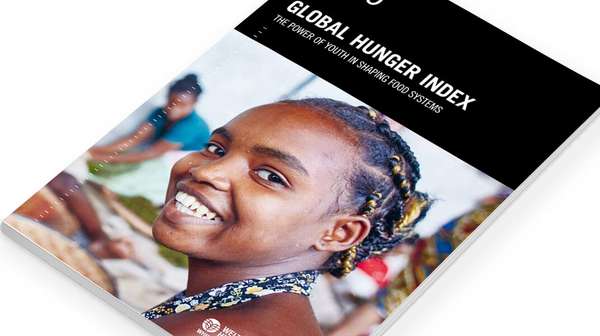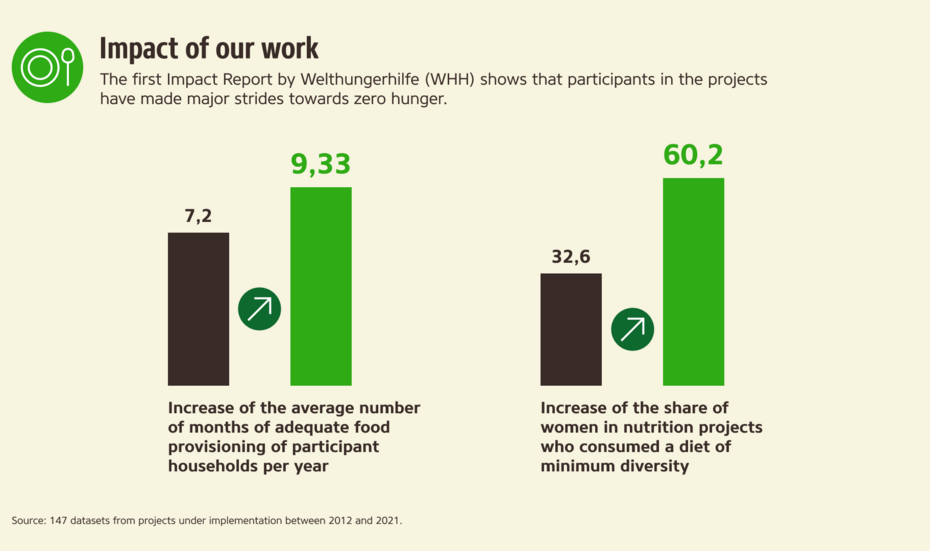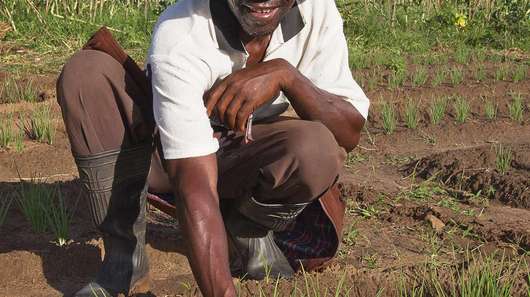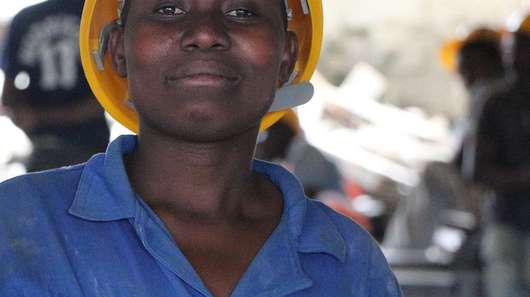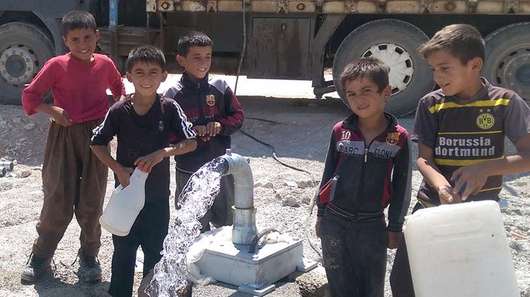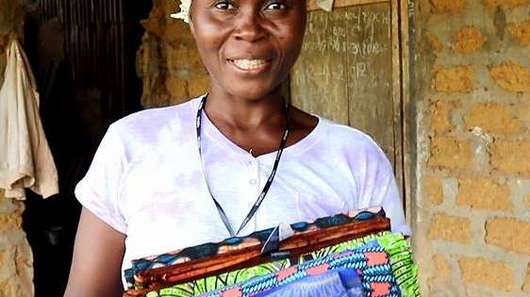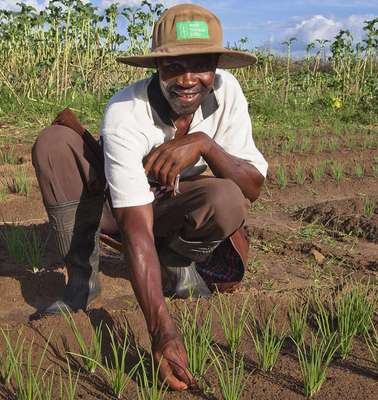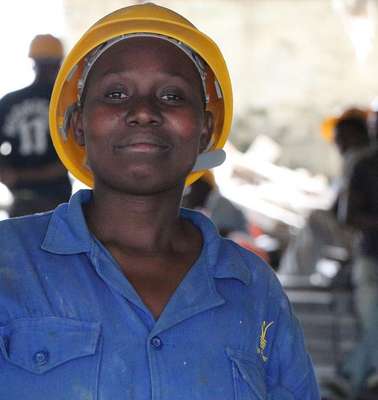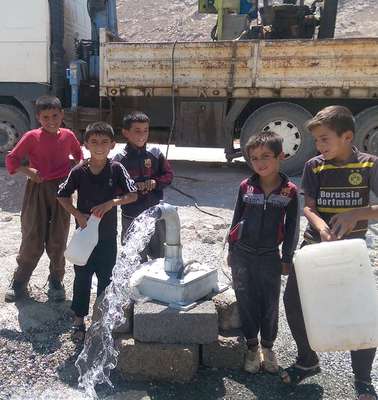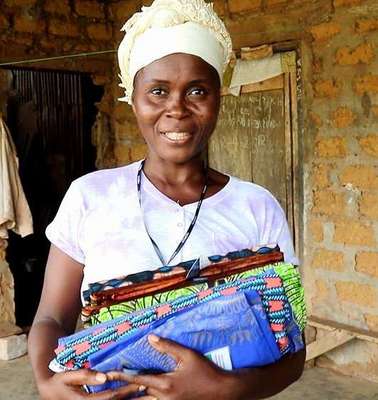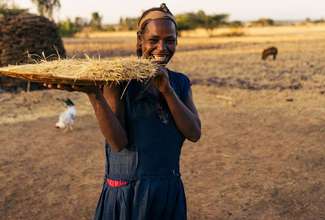The Global Hunger Index (GHI) shows long-term progress in reducing hunger in the world.
Progress and Impact
Successes in the fight against hunger
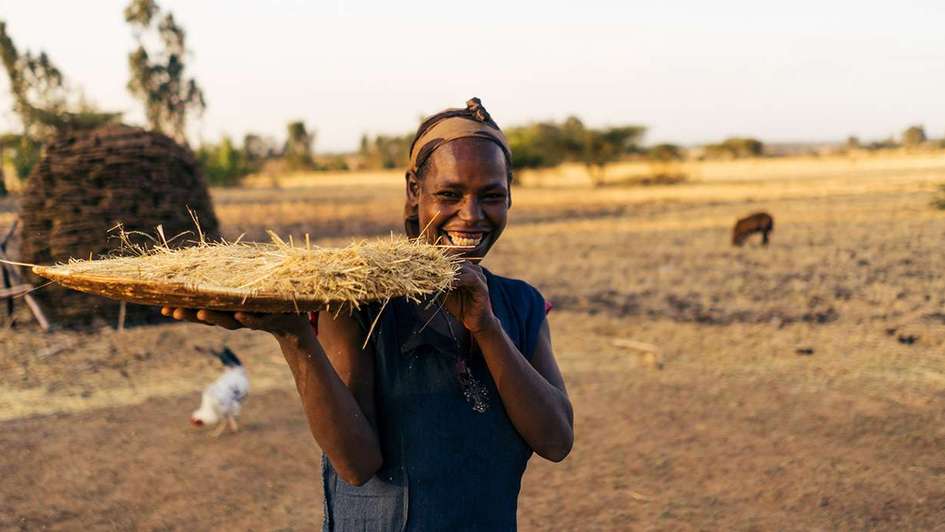
The world has made significant progress in the fight against hunger in the course of the past decades. However, the current pace will not be fast enough to reach the objective of Zero Hunger by 2030. The international community must do more.
In addition to projects for sustainable food and nutrition security and humanitarian assistance, Welthungerhilfe (WHH) is collaborating with alliance partners and political initiatives to demand greater political anti-hunger efforts at the national and international levels.
The Global Hunger Index (GHI) is a decisive tool for recognizing what needs to be done in respective countries and for building pressure to act. The GHI presents an annual evaluation of successes and setbacks in the global fight to overcome hunger.
Our contribution
In 2023 alone, WHH supported approximately 16.4 million people in 36 countries with 630 overseas projects. In concrete terms, this means that people were able to survive, harvest more, eat better, get clean drinking water and sanitary infrastructure locally, fall ill less often, secure an income or surplus or earn an education. For children, WHH support means a chance for healthy physical and mental development.
WHH projects focus on sustainable rural development and on supporting smallholders. A look at the countries with the highest project funding, however, reveals another focus: Man-made crises and natural disasters require rapid, life-saving emergency aid.
In these cases as well, however, WHH support extends beyond simply providing food and shelter. In Iraq, for example, WHH is helping to rebuild basic infrastructure in the areas liberated from IS. The people threatened by a fatal famine in the Horn of Africa are being prepared for future droughts with long-term resilience projects.
Welthungerhilfe's 2023 Annual Report documents the organization's work worldwide.
Our objective: making ourselves redundant
Development cooperation is supposed to do one thing above all: Empower people to help themselves. WHH has been working in accordance with this guiding principle since it was founded in 1962. It has already succeeded in transferring projects to local partners in numerous regions, ultimately withdrawing from them entirely. In parts of Ecuador or the Philippines, for example, the local population was empowered to such an extent that outside development aid was no longer necessary.
However, even in places in which WHH is still active, the principle of empowering people to help themselves is taking hold:
How we make progress and achieve an impact
With 630 projects around the world, how can you define project success? How can WHH ensure that all measures are effectively implemented – from Afghanistan to Zimbabwe?
WHH systematically analyzes its projects to see if they are achieving their goals, through project-specific progress surveys and cross-project success indicators. These success indicators cover four key questions:
- How many people WHH reached and who are they?
- To what extent have their lives improved?
- How sustainable are the measures?
- Is WHH the right organization to provide the best possible support for the people on the ground?
WHH uses the results to constantly examine and improve its work. In addition to in-house checks, the organization's work is regularly evaluated by independent experts. Find out more about WHH's quality management.
There is much to do
As the GHI demonstrates, fewer people are currently suffering from hunger than 50, 25 or even five years ago. WHH did its part to contribute to this statistic, as did many other aid organizations. By 2030, hunger can and shall be eliminated around the world. The international community has committed to this objective. Theoretically, all eight billion people could already be provided for today, but this goal has so far been obstructed by an unequal distribution of resources.
In order to make real progress by 2030, the pace of the fight against hunger must be drastically increased. For example, if Africa South of the Sahara and South Asia continue to decrease their rates of hunger at their current pace, they will still register moderate to severe rates of hunger by 2030, missing Zero Hunger by a wide margin. Politics, economics, science, society and civil social organizations must all improve their collaboration and adjust their strategies and actions to achieve the objectives of Agenda 2030. This is the right of 733 million hungry people.
Zero Hunger by 2030 – this monumental task concerns us all. Help us achieve a world without hunger!




